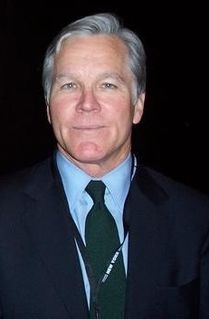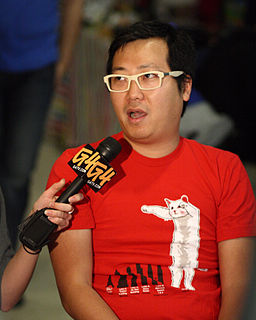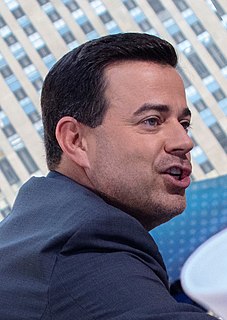A Quote by Bill Keller
I may be the old-media id, but I think I may be entitled to some credit for being a new-media pioneer.
Related Quotes
I was on television a couple of years ago and the reporter asked me, "How does it feel being on mainstream media? It's not often poets get on mainstream media." I said, "Well I think you're the dominant media, the dominant culture, but you're not the mainstream media. The mainstream media is still the high culture of intellectuals: writers, readers, editors, librarians, professors, artists, art critics, poets, novelists, and people who think. They are the mainstream culture, even though you may be the dominant culture."
From American Idol to The Matrix participatory media - where old and new media converge by involving fans - is influencing our culture by creating new forms of interactive storytelling. Yet by enabling people to participate in such various media they can converge as a crowd to alter the story to create new modes of engagement, some not necessarily endorsed by the creator - or the brands that back them.
I have learned one thing, because I get treated very unfairly, that's what I call it, the fake media. And the fake media is not all of the media. You know some tried to say that the fake media was all the media, no. Sometimes they're fake, but the fake media is only some of the media. It bears no relationship to the truth.
I've talked about how the future of journalism will be a hybrid future where traditional media players embrace the ways of new media (including transparency, interactivity, and immediacy) and new media companies adopt the best practices of old media (including fairness, accuracy, and high-impact investigative journalism).
Working with lots of old media clients, I've had a front-row seat on the ascension of new social players and the decline of traditional news outlets. And it's clear to me that old media has an awful lot to learn from social media, in particular in five key areas: relevance, distribution, velocity, monetization, and user experience.
Communication is paramount, and what medium or what format you utilize should be a non-issue. In some respects, that has created a barrier for new media, especially web new media, because often times maybe the media itself comes before the concept, before the ideas, and ends up navigating or dictating the outcome.
The arrival of television established a mass-media order that dominated the last 50 years. This is a personal media revolution. The distinction between the old order and the new order is very important. Television delivered the world to our living room. In the old media, all we could do was press our noses against the glass and watch.
The media is terribly worried that Donald Trump is going to influence people. The media will tell you, I mean, crazy Mika, Ms. Brzezinski, actually said that she worries that Trump may actually end up controlling what people think on jobs and the economy. And it's not the president's job, it's the media's job to tell people, to determine people exactly what they think.


































